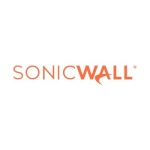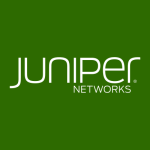What is our primary use case?
We use pfSense in our clients' offices to provide secure network access. For remote workers requiring private network connectivity, we deploy a Netgate pfSense router in both the office and the user's home office, establishing a robust IPsec connection between the two. This configuration offers superior security compared to alternatives like OpenVPN, as remote users simply need to connect their LAN cable to the home pfSense for immediate and secure office network access. We primarily serve small organizations with 10 to 200 employees, deploying a pfSense router in each main office and providing OpenVPN or IPsec connectivity. Additionally, we offer optional pfBlocker-NG integration for advanced threat protection, enabling the blocking of traffic from specific geographic regions or known malware sources.
We have several sites with multiple or backup-wide area networks. We use pfSense to manage these networks, configuring them for load balancing or backup as needed. To authenticate OpenVPN logins, we leverage Active Directory on our Windows Server, simplifying user management. Office managers can easily disable both Windows and OpenVPN access for users without needing to access pfSense directly. This centralized approach requires only a single robust passphrase for users to access both the VPN and the Windows domain.
How has it helped my organization?
I am accustomed to the interface and find it quick to use. However, I think a new user might need some time to adjust. That said, I've been using it for over 15 years.
As a network administrator, I fully understand the benefits of pfSense before deployment. While end users may not immediately recognize its advantages, I appreciate its value in eliminating the need for costly licenses associated with other firewalls like Barracuda and Checkpoint. PfSense offers a comprehensive suite of features, including VPN, user management, and advanced DNS, without requiring additional fees. This cost-saving aspect is a significant selling point for me when replacing older firewalls with Netgate pfSense. Not only do we improve network security, but we also reduce ongoing expenses, a benefit that becomes apparent to clients over time.
Adding features in the packages section of the interface is quite rapid, especially when limiting options to available packages. However, configuring unfamiliar or infrequently used packages requires research and time, ideally by someone with networking and firewall experience. While pfSense is not entirely plug-and-play, the basic setup is straightforward; adding features demands more technical knowledge. So, feature addition is easy, but configuration can be moderately complex.
pfSense can help prevent data loss by making it difficult for hackers to breach networks. However, most data loss incidents we see result from end-users clicking on malicious links or email attachments. When data loss or ransomware occurs, the issue typically lies with user error rather than pfSense. I believe that the networks I configure using pfBlocker, which restrict communication primarily to the continental US and other approved countries, may help block ransomware. Still, I cannot quantify the frequency of such occurrences.
Approximately ten percent of pfSense routers experience critical issues requiring a factory reset. Previously, this process involved contacting tech support and providing detailed information. However, pfSense has simplified this by offering self-service image downloads. This improvement significantly speeds up customer recovery time. Additionally, Netgate's pfSense Plus hardware comes with a Zero-to-Ping warranty, enabling easy setup and troubleshooting for end users. While not entirely plug-and-play, most users can easily install these routers, and Netgate's warranty provides additional support if needed. I've successfully utilized the Zero-to-Ping warranty several times and believe it is a valuable resource for both technicians and end users.
pfSense has helped enable data-driven decisions. It allows me to communicate the need for faster WAN lines to client management by providing concrete evidence of network performance. Additionally, pfSense offers detailed insights into OpenVPN user activity and IPsec traffic, facilitating targeted problem-solving. For instance, I can readily identify slow IPsec connections for remote users, such as user X, and advocate for necessary improvements based on these data-driven findings.
What is most valuable?
OpenVPN, IPsec, DHCP, and DNS are the most valuable features. I will also include pfBlocker-NG later in the list, but only a couple of sites use this feature.
What needs improvement?
pfSense does offer a convenient single-pane dashboard, but I believe it could be improved with additional features. For instance, an administrator log for team members to record notes, such as adding a nameserver, removing user accounts, or other relevant information, would be beneficial. This simple log within the main status page could enhance communication and collaboration among the admin team. While the current status screen provides most of the necessary information, this extra feature would be a valuable addition.
It would be beneficial if Netgate provided a table outlining the recommended maximum WAN port speeds for their various models.
The documentation doesn't align with what I'm seeing on the console. This is frustrating because the online documentation doesn't match the dashboard, leaving me unsure of the correct steps to take.
Buyer's Guide
Netgate pfSense
January 2026
Learn what your peers think about Netgate pfSense. Get advice and tips from experienced pros sharing their opinions. Updated: January 2026.
881,757 professionals have used our research since 2012.
For how long have I used the solution?
I have been using Netgate pfSense for 16 years.
What do I think about the stability of the solution?
I would rate pfSense's stability a perfect ten. When I replace consumer routers with pfSense for small businesses with two or three employees, they are often amazed to discover the router can run for a year without a reboot. This starkly contrasts their previous experience with consumer routers that required weekly or bi-weekly unplugging.
What do I think about the scalability of the solution?
I have been pleased with pfSense's scalability. While I haven't explored all its features, I have successfully backed up an old system and restored it to a new pfSense device, which I consider an upgrade. I know additional capabilities like load balancing and backup device management but haven't implemented them due to a lack of current need. PfSense offers much more potential than I've utilized.
How are customer service and support?
The quality of the support is high. While the speed used to be somewhat slow, I've noticed a significant improvement in recent calls, connecting with a representative quickly within the past year.
How would you rate customer service and support?
Which solution did I use previously and why did I switch?
We've used multiple firewall solutions over the years. Twenty years ago, we implemented Monowall. Subsequently, we switched to Barracuda, which proved highly problematic and required frequent technical support intervention. Our next choice, SonicWall, was an improvement over Barracuda but still presented challenges. Specifically, SonicWall's licensing model is burdensome, as it necessitates constant management on my part, a task end-users are unwilling or unable to perform. Though less frequent than with Barracuda, technical support interactions are still necessary.
How was the initial setup?
Initial deployment is straightforward, taking approximately half an hour for each unit. While pfSense is not the issue, challenges often arise due to clients' limited understanding of their network configurations. A single person can effectively handle the deployment process.
What's my experience with pricing, setup cost, and licensing?
I appreciate that pfSense eliminates the need for extra payments, license management, or feature limitations. This cost-effectiveness and its reliable Zero-to-Ping guarantee is its most compelling aspect.
The pricing seems fair overall, but I think they need more reasonably priced options for very small offices. They currently offer a few affordable units at the lower end, but then there’s a significant price jump to the next level. I remember they used to have a model around the 2100 range that was a good middle ground. I believe they should offer more choices between the lowest tier and the next one in terms of hardware. Additionally, I'd like to see a per-incident support option, which I don't think they currently provide. I haven’t checked their support options in a while, so I could be mistaken. However, in the past, they only offered annual plans. If I encounter a specific issue, I would prefer the ability to pay a one-time fee for complete support on that particular problem.
The total cost of ownership is great. pfSense is our most recommended appliance for router, firewall, and VPN functionality.
What other advice do I have?
I would rate Netgate pfSense nine out of ten.
Users don't need to do anything to maintain the system, but I like to check all pfSense instances every few months, install updates, and look for any irregularities. I try to check every single pfSense system if possible. pfSense needs to be manually updated.
Disclosure: PeerSpot contacted the reviewer to collect the review and to validate authenticity. The reviewer was referred by the vendor, but the review is not subject to editing or approval by the vendor. The reviewer's company has a business relationship with this vendor other than being a customer: Reseller


















